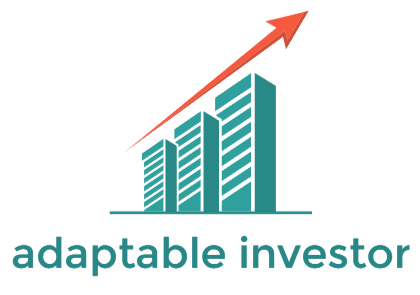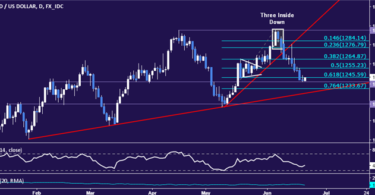This month's list of top dividend stocks consists of international marine shipping companies Frontline PLC (FRO), Genco Shipping & Trading Ltd. (GNK); energy company Berry Corp. (BRY); and real estate investment trusts Two Harbors Investment Corp. (TWO) and Ready Capital (RC).
Dividend-paying companies tend to be well-established, with stable earnings and a track record of distributing a portion of them to shareholders in the form of cash or additional stock. One useful measure to gauge the sustainability of a company's dividend payments is the dividend payout ratio (DPR), which measures total dividends divided by net income. It tells investors how much of the company's net income is being paid to shareholders in the form of dividends compared with how much the company is retaining to invest in further growth.
If the ratio exceeds 100% or is negative (meaning net income is negative), the company may be borrowing to pay dividends. In these cases, the dividends are at a relatively greater risk of being cut. While dividend stocks are known for the regularity of their payments, the payout may be cut to preserve cash in difficult times.
Dividend stocks, as measured by the S&P 500 Dividend Aristocrats Index in early May, are up 0.8% in the past year compared with the 0.17% decline of the Russell 1000 Index.
Below, we look at the top five dividend stocks in the Russell 3000 Index by forward dividend yield, excluding companies with payout ratios that are either negative or in excess of 100%.
Frontline PLC is a crude oil shipping company with 70 vessels that is based in Cyprus. The company in late February reported its highest quarterly net income since the second quarter of 2008, which was $240 million, for the fourth quarter of 2022. In addition, Frontline more than doubled its quarterly cash dividend in the fourth quarter to 77 cents per share.
Two Harbors Investment Corp. is a real estate investment trust (REIT) that invests in financial assets such as mortgage-backed securities (MBS). On Feb. 3, the company announced a public offering of 10 million shares for an expected $178 million in total proceeds.
Genco Shipping & Trading Ltd. operates an ocean transport company with 44 vessels that ship dry-bulk cargo internationally. The company declared a quarterly dividend of 15 cents per share for the first quarter. Genco reported a reduced rate of return from their shipping vessels, resulting in a 31% decrease in total revenue in the first quarter.
Berry Corp. is an upstream energy company exploring oil properties within the U.S. During the first quarter the company announced a doubled dividend of 12 cents per share. Revenue for Berry nearly tripled compared with the first quarter of 2022 due to gains made from oil and gas sales derivatives.
Ready Capital Corp. is a real estate investment trust that finances commercial loans. The company declared a quarterly dividend of 40 cents per share for the first quarter.12 On Feb. 27, Ready Capital and Broadmark Realty Capital Inc. (BRMK) entered an agreement in which Broadmark Realty will merge with Ready Capital, creating a $2.8 billion capital base.13
High dividend yields don't always mean a company is in good financial health. Be sure to look at the financial well-being and growth potential of companies in addition to dividend yield before investing.
3 Ratios Used To Analyze Dividend Stocks
Dividend Yield: This ratio measures the annual value of dividends received relative to a security's per-share market value. Investors calculate the dividend yield by dividing the annual dividend per share by the current stock price.
For example, if company XYZ issues a dividend of $10 annually with a current share price of $100, it has a dividend yield of 10% ($10 / $100 = 10%). Those seeking high-yielding stocks can start their search by screening for issues with a divided yield above a certain percentage. Bear in mind that there are many other factors besides dividend yield that investors should consider before investing in a stock.
Dividend Payout Ratio: The DPR measures how much of a company's earnings are paid out to shareholders. Investors calculate the ratio by dividing total dividends by net income.
For instance, if company XYZ reported a net income of $50,000 and paid $15,000 in annual dividends, it would have a DRP of 30% ($15,000 / $50,000 = 30%). This means the company pays out 30% of its earnings to shareholders. Generally, a company that pays out less than 50% of its net earnings in dividends is considered stable and has the potential for sustainable long-term earnings growth.
Dividend Coverage Ratio: This ratio measures the number of times a company can pay dividends to its shareholders. Investors calculate the dividend coverage ratio by dividing a company's annual earnings per share (EPS) by its annual dividend per share.
For example, if company XYZ reported $10 million in net income with an annual dividend of $2 million to shareholders, it has a dividend coverage ratio of five times ($10 million / $2 million). Typically, investors view a higher dividend coverage ratio as more favorable.
Advantages of Dividend Stocks
Two key advantages of investing in dividend stocks are generating a passive income and dividend reinvestment.
Passive Income: Companies that pay dividends typically issue them quarterly, creating a reliable stream of passive income that investors can spend as they please. Dividends also have the added advantage of offsetting share price depreciation.
Dividend Reinvestment: Investors can reinvest dividends they receive back into the company to acquire more shares. This is called a dividend reinvestment plan (DRIP). Participating in a DRIP allows the investor to take advantage of compounding returns—a strategy to build long-term wealth.
Do Your Dividend Stock Research
A high yield is just one of several aspects to consider when investing in dividend stocks. A higher-than-average yield can signal trouble if a struggling company is paying large dividend amounts in an effort to attract investors.
In addition to dividend yield, be sure to take a good look at the following data as well.
- Payout ratio: A payout ratio of 35% to 55% is considered healthy because a company that distributes up to half of its earnings as dividends is likely to be a good performer and an industry leader. Importantly, it's reinvesting a good share of its earnings back into itself for growth.14
- Dividend increases: A solid history of increasing dividends is welcome news because it indicates that a company has had the financial wherewithal and desire through good economic times and bad to keep paying its shareholders, and to raise the amount it pays.
- Dependable revenue and earnings growth: Over time, the more stable, the better. An occasional erratic result might not raise eyebrows but anything else may signal a company in trouble.
- Solid market share and competitive advantages: These can help companies maintain their ability to be excellent performers. Such advantages might be intellectual property, advanced technology, high barriers to entry, and a highly recognizable and respected brand name.
What Is the Dividend Yield?
It’s a percentage that represents the income (via dividends) that a company pays stock investors versus the price of the stock. Dividend yield is just one metric that may help investors to decide whether a company's stock can make a good addition to their portfolios.
How Does the Payout Ratio Relate to Dividend Yield?
While dividend yield compares dividend income with stock price, the payout ratio compares dividend income with company earnings. In other words, it shows investors how much a company pays them versus how much it keeps for itself. It can provide an idea of the income investors may expect to receive in the future. A payout ratio that is too high—where the company pays investors much more than it reinvests in itself—can mean there's not much room for dividend growth. It may signal a company is in trouble.
What Companies Have Paid Dividends the Longest?
Famously, the following companies are among those that have paid shareholders dividends for over 100 years: Coca-Cola, General Mills, Chubb, Colgate-Palmolive, Proctor & Gamble, Consolidated Edison, Eli Lilly, and ExxonMobil.
The Bottom Line
Dividend yield compares the income a company pays shareholders with the price of that stock. It’s calculated by dividing the annual dividend amount (the amount of income paid throughout a year) by the stock’s price. While a high dividend yield may be appealing, it doesn't necessarily mean a stock is a smart investment.
Dividend yield is one tool to use to screen for dividend stocks that are potentially worth owning. Overly high dividend yields may indicate that a company is struggling. Likewise, companies with extremely high payout ratios can also signal danger to investors.
Before investing your money, invest some time in looking for companies that are financially healthy enough to sustain and potentially grow their dividends, and continue to offer an attractive dividend yield.
Originally published on Investopedia.com






